Partners

IHE Delft Institute for Water Education, the Netherlands (IHE Delft)
IHE Delft Institute for Water Education is the largest international graduate water education facility in the world and is based in Delft, the Netherlands. Since 1957 the Institute has provided water education and training to 23,000 professionals from over 190 countries, the vast majority from Africa, Asia and Latin America. Over 100 PhD fellows are currently enrolled in water-related research and more than 120 water research and capacity development projects are carried out throughout the world at any one time. In addition, a large number of projects have been carried out to strengthen the capacity of water sector institutions worldwide. Through its overarching work on capacity development, IHE Delft aims to make a tangible contribution to achieving all Sustainable Development Goals in which water is key.
IHE Delft centres its education, research and capacity development programmes around six key themes: Safe Drinking Water & Sanitation, Water-Related Hazards & Climate Change, Water & Ecosystems Quality, Water Management & Governance, Water, Food & Energy Security, and Information & Knowledge Systems. Through each of these themes, the Institute addresses the major water and environment-related issues and challenges faced at an international level
Role in project: IHE Delft is the overall coordinator of the I-CISK project, as well as the overall coordination of the Living Labs and the co-lead of the Rijnland Living Lab
Contact Person(s): Micha Werner (m.werner@un-ihe.org) and Ilyas Masih (i.masih@un-ihe.org)
URL: www.un-ihe.org
IHE Delft centres its education, research and capacity development programmes around six key themes: Safe Drinking Water & Sanitation, Water-Related Hazards & Climate Change, Water & Ecosystems Quality, Water Management & Governance, Water, Food & Energy Security, and Information & Knowledge Systems. Through each of these themes, the Institute addresses the major water and environment-related issues and challenges faced at an international level
Role in project: IHE Delft is the overall coordinator of the I-CISK project, as well as the overall coordination of the Living Labs and the co-lead of the Rijnland Living Lab
Contact Person(s): Micha Werner (m.werner@un-ihe.org) and Ilyas Masih (i.masih@un-ihe.org)
URL: www.un-ihe.org
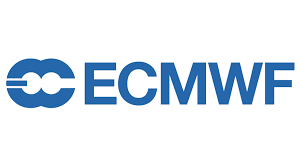
European Centre for Medium-Range Weather Forecasts, UK (ECMWF)
ECMWF is an international organization supported by 34 States (23 Members and 11 Co-operating Members). ECMWF's principal objectives are the preparation, on a regular basis, of medium-range and long-range weather forecasts for distribution to the meteorological services of the Member States, the development of scientific and technical research directed to the improvement of these forecasts, and the collection and storage of appropriate meteorological data. ECMWF's computer facility includes supercomputers, archiving systems and networks. ECMWF is the entrusted entity for the Copernicus Climate Change Service (C3S) and the Copernicus Atmosphere Monitoring Service (CAMS). The C3S responds to environmental and societal challenges associated with human-induced climate change. ECMWF is also the operational computational centre for the Copernicus Emergency Management Service (CEMS) for floods and fire. In its daily duties, ECMWF provides daily fire danger and flood forecasts that are used by the Copernicus Global and European Fire/Wildfire Information Systems (GWIS and EFFIS). It is also responsible for the maintenance and operational running of the Global and European Flood Awareness Systems (GloFAS and EFAS), which provide daily flood forecasts alongside monthly seasonal river flow forecast products for high and low flow.
Role in project: ECMWF leads tasks on the co-design of climate services and user-driven and impact-based evaluation of climate services
Contact Person(s): rebecca.emerton@ecmwf.int
URL: www.ecmwf.int
Role in project: ECMWF leads tasks on the co-design of climate services and user-driven and impact-based evaluation of climate services
Contact Person(s): rebecca.emerton@ecmwf.int
URL: www.ecmwf.int
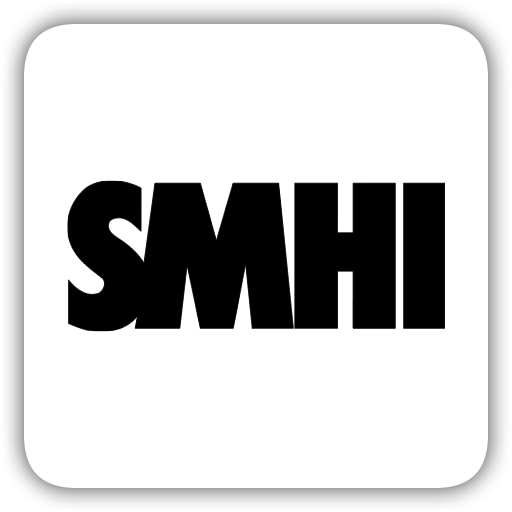
Sveriges Meteorologiska och Hydrologiska Institut, Sweden (SMHI)
SMHI is a public body under the Swedish Ministry of Environment, running both governmental services and commercial businesses. SMHI provides decision support to a broad range of end-users, based on meteorology, hydrology, oceanography and climatology information. The institute is responsible for national monitoring and modelling in these fields, data archives and refinement of information for societal needs. SMHI has a long tradition in developing customized products and services (today mostly as web applications), as well as 24/7 production of forecasts with early warnings, and operates the dissemination of flood alerts to other EU member states in the EFAS system for EU Copernicus. SMHI has a long tradition in operational hydrological modelling of river discharge. The hydrological development at SMHI is focused on improvements of the complete chain in forecast production, tools for climate change impact assessment, and environmental modelling of nutrient fluxes in catchments, rivers, lakes and wetlands SMHI has a long-standing experience with using open data for continental hydrological modelling and is one of the few international actors capable of linking recent scientific progress with operational forecast systems for long-term institutional maintenance.
Role in project: SMHI leads research in tailoring climate services through integration of scientific state-of-the-art tools, methods and local knowledge.
Contact Person(s): Ilias Pechlivanidis (ilias.pechlivanidis@smhi.se)
URL: https://www.smhi.se
Role in project: SMHI leads research in tailoring climate services through integration of scientific state-of-the-art tools, methods and local knowledge.
Contact Person(s): Ilias Pechlivanidis (ilias.pechlivanidis@smhi.se)
URL: https://www.smhi.se

VU Amsterdam, the Netherlands (VUA)
Academic research and education at VU Amsterdam is characterised by a high level of ambition, and encourages free and open communications and ideas. VUA hosts ~23,000 students and ~1,800 scientific staff. Research is divided into four themes, reflecting strong involvement in current societal issues related to the current call text: Science for Sustainability, Human Health and Life Sciences, Connected World, and Governance for Society. Within VUA, I-CISK will be carried out by the Institute for Environmental Studies (IVM), one of the world’s leading institute’s in natural hazard risk assessment and analysis. IVM has a long history of natural hazard risk assessment at the local to national scale, and the institute and its staff are at the forefront of driving risk science towards a multi-hazard approach. The institute also has a wealth of expertise on behavioural science, economics and stakeholder engagement. Research at VUA and IVM is characterised by a successful integration of research and policy, with strong links into Dutch, European, and international networks in DRM (e.g. UNDRR, GFDRR, RISK-KAN, Netherlands Ministry of Infrastructure and Water Management) and climate adaptation (e.g. IPCC, C40, OECD, Red Cross Climate Centre). IVM also has strong links with industry, including projects with Risk Prediction Initiative, Munich RE, Achmea, SNS Reaal, and leading international think-tanks (e.g. World Resources Institute).
Role in project: VUA leads the research on co-designing climate services through local knowledge and behavioural factors.
Contact Person(s): Marije Schaafsma (m.schaafsma@vu.nl)
URL: www.ivm.vu.nl
Role in project: VUA leads the research on co-designing climate services through local knowledge and behavioural factors.
Contact Person(s): Marije Schaafsma (m.schaafsma@vu.nl)
URL: www.ivm.vu.nl
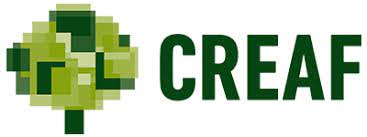
Centro De Investigación Ecológica Y Aplicaciones Forestales, Spain (CREAF)
CREAF is a public research and innovation centre in terrestrial ecology, territorial analysis and environmental impact. The centre aims to contribute to improving the conservation and management of our natural environment by acting as a bridge between academia, public administrations and society and within its spheres of action. Priority research lines of CREAF are: biodiversity; functional diversity and global change, forest ecology and territorial analysis with Earth Observation. CREAF´s expertise includes conservation ecology, land use dynamics, forest biomass, powerful GIS technologies, remote sensing, water flows, climate change and water budgets and modelling ecosystem processes. CREAF is member or collaborator of relevant European and worldwide organizations, a short selection: Copernicus Academy, GEOSS; The European Water Platform, IPBES, OPCC, alter-net.
Role in project: CREAF co-leads the Spanish Living Lab (Guadalquivir river basin) as well as research on fit for purpose methodologies to meet local needs
Contact Person(s): Lluís Pesquer(l.pesquer@creaf.uab.cat)
URL: http://www.creaf.cat
Role in project: CREAF co-leads the Spanish Living Lab (Guadalquivir river basin) as well as research on fit for purpose methodologies to meet local needs
Contact Person(s): Lluís Pesquer(l.pesquer@creaf.uab.cat)
URL: http://www.creaf.cat
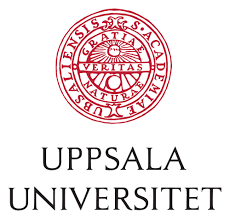
Uppsala Universitet, Sweden (UPPS)
The Department of Earth Sciences at Uppsala University (UPPS) offers education and research with a unique scope and in international evaluations is considered to be one of Europe's most complete earth science institutions. The Department’s scope is represented by experienced teachers and researchers with expertise covering areas from floods to earthquakes, weather, wind power and climate, from the beginning of life to dinosaurs, and from lakes to glaciers, carbon dioxide storage and sustainable energy systems. In the field of Water Resources, University of Uppsala ranked in the top 50 and first among the northern countries in Shanghai Ranking's Global Ranking of Academic Subjects 2019 for the outstanding research results.
UPPS is part of the Centre of Natural Hazards and Disaster Science (CNDS), an interdisciplinary research centre in Sweden that brings together early career scientists and leading researchers from engineering, social and earth sciences to work together on collaborative projects on natural hazards, socio-technological vulnerabilities, and societal security. CNDS vision is to understand coupled socio-natural systems and reciprocal feedback mechanisms between natural hazards and socio-technical vulnerability, and the centre’s mission is to advance disaster risk reduction and contribute to enhancing society’s ability to prevent and cope with natural hazard risks in the national and international context.
Role in project: Uppsala University leads research on unravelling the interplays and feedbacks between climate change, CS, and adaptation actions at different spatial-temporal scales.
Contact Person(s): Giuliano di Baldassare (giuliano.dibaldassarre@geo.uu.se)
URL: www.uu.se
UPPS is part of the Centre of Natural Hazards and Disaster Science (CNDS), an interdisciplinary research centre in Sweden that brings together early career scientists and leading researchers from engineering, social and earth sciences to work together on collaborative projects on natural hazards, socio-technological vulnerabilities, and societal security. CNDS vision is to understand coupled socio-natural systems and reciprocal feedback mechanisms between natural hazards and socio-technical vulnerability, and the centre’s mission is to advance disaster risk reduction and contribute to enhancing society’s ability to prevent and cope with natural hazard risks in the national and international context.
Role in project: Uppsala University leads research on unravelling the interplays and feedbacks between climate change, CS, and adaptation actions at different spatial-temporal scales.
Contact Person(s): Giuliano di Baldassare (giuliano.dibaldassarre@geo.uu.se)
URL: www.uu.se
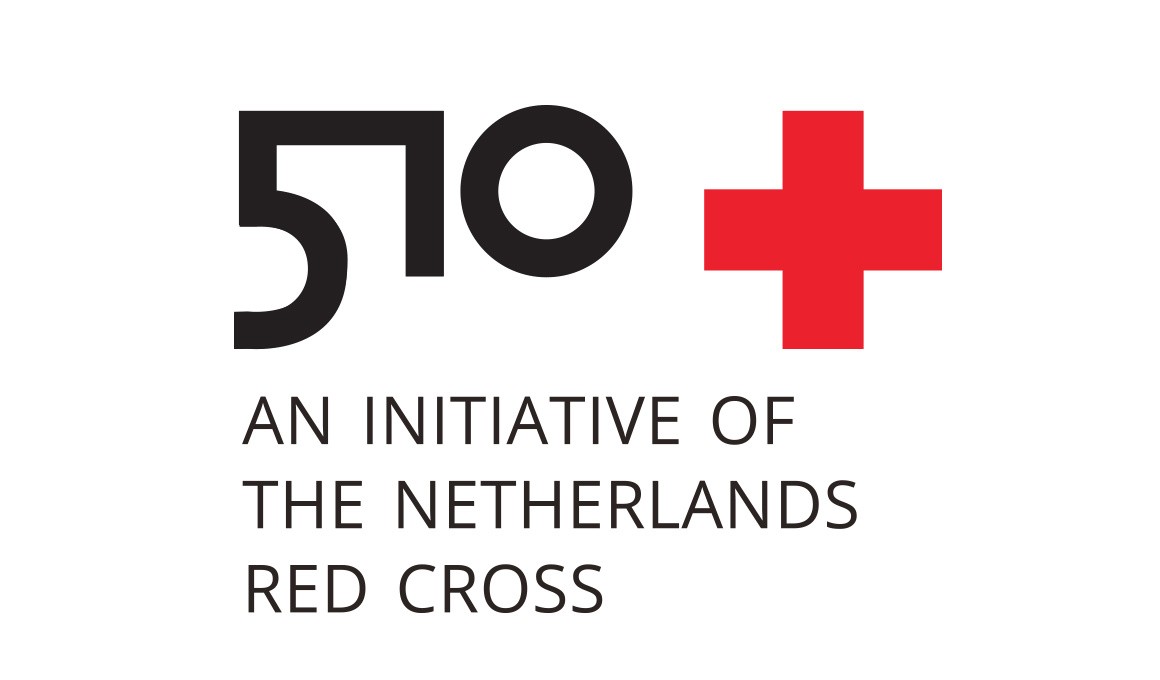
Het Nederlandse Rode Kruis Vereniging, the Netherlands (RC510)
RC510 is a data initiative of The Netherlands Red Cross, with a team that brings together a variety of skills in rapid prototyping of tools and services for disaster risk management, data science, geographical information management and applications, responsible use of data and disaster risk management. RC510's purpose is to improve the speed, quality and cost-effectiveness of humanitarian aid by using data & digital products. RC510 serves Red Cross National Societies (over 33 currently) and their local partners with a drive for data & digital transformation. RC510 is a front runner in promoting the use of data in the Red Cross movement and has created data teams within over ten Red Cross National Societies in developing countries. RC510 has built several data dashboards in East Africa, and is developing food security machine learning models for Ethiopia and Kenya. RC510 is partner in several projects around co-producing climate services at seasonal and sub seasonal scale in particular for drought, where RC510 contributes in terms of human centred design and integrating local and scientific knowledge. RC510 collaborates with the UN OCHA Humanitarian Data Centre in The Hague (linked to the Humanitarian Data Exchange) and is partner of the INFORM risk index consortium. Data partners include global satellite data providers such as NASA or private sector partners as Vandersat, but also national partners in several developing countries in Africa and Asia. Through these networks and partners, new data innovations can be scaled up within the Red Cross and partnering organizations.
Role in project: Red Cross 510 leads the Namibia Living Lab (in collaboration with the Namibia Red Cross), as well as on impact evaluation of the project, in particular in the Living Labs.
Contact Person(s): Marc van den Homberg (MvandenHomberg@redcross.nl)
URL: https://www.510.global/
Role in project: Red Cross 510 leads the Namibia Living Lab (in collaboration with the Namibia Red Cross), as well as on impact evaluation of the project, in particular in the Living Labs.
Contact Person(s): Marc van den Homberg (MvandenHomberg@redcross.nl)
URL: https://www.510.global/
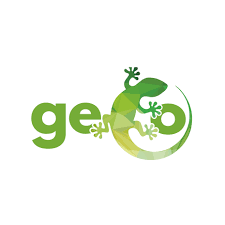
GECOsistema S.r.l., Italy (GECO)
GECOsistema is a specialist environmental consulting engineering and research company providing advanced consulting, scientific research, innovation, product developments, data science and modeling services in the fields of: water, energy, air and noise pollution, climate change and environmental risk assessment.
GECOsistema operates at both global, national and local levels in collaboration with highly qualified partners. We combine advanced environmental modelling, geographic Information System-GIS and Spatial Analysis tools, remote sensing and satellite observations, predictive analytics, data science and machine learning with razor-sharp intellectual skills to give you the critical insight you need into environmental and climate issues.
Role in project: GECO co-leads the implementation of the I-CISK web platform for downstream climate services, as well as leading the Italy Living Lab.
Contact Person(s): Stefano Bagli (stefano.bagli@gecosistema.com) and Paolo Mazzoli (paolo.mazzoli@gecosistema.com)
URL: www.gecosistema.com
GECOsistema operates at both global, national and local levels in collaboration with highly qualified partners. We combine advanced environmental modelling, geographic Information System-GIS and Spatial Analysis tools, remote sensing and satellite observations, predictive analytics, data science and machine learning with razor-sharp intellectual skills to give you the critical insight you need into environmental and climate issues.
Role in project: GECO co-leads the implementation of the I-CISK web platform for downstream climate services, as well as leading the Italy Living Lab.
Contact Person(s): Stefano Bagli (stefano.bagli@gecosistema.com) and Paolo Mazzoli (paolo.mazzoli@gecosistema.com)
URL: www.gecosistema.com
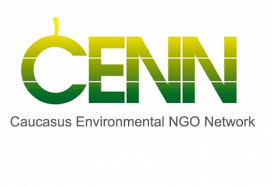
Caucasus Environmental NGO Network, Georgia (CENN)
CENN is a non-governmental organisation working to protect the environment through fostering sustainable development throughout the South Caucasus. It specialises in a number of areas including combating climate change, sustainable management of resources, building and developing healthy and prosperous climate resilient communities, and empowering women and girls to participate in creating inclusive solutions. Since 1998, CENN has worked with local communities and national governments through region-wide initiatives to engender green growth at every level. At CENN, we believe that sustainable development is best achieved through networking, cooperation, and engaging with all sections of society. We implement joint initiatives with equal participation across Armenia, Azerbaijan and Georgia to find viable solutions to local and regional environmental challenges.
With representation throughout the South Caucasus, more than 60 full time members of staff, and a network of volunteers across the region, CENN has the capability and commitment to provide a service that is consistent, professional and of the highest quality. We deliver modern solutions for the public and business sectors and communities, assisting them in managing their environmental and related risks and helping them to achieve a competitive advantage through improved environmental and social performance. CENN’s key competences include Civil society development and institutional strengthening, Environmental research and policy, Compliance management, Education, knowledge management and networking. The mission of CENN is to work with communities, governments, and businesses across the South Caucasus to create sustainable solutions for a healthy environment.
Role in project: CENN leads the Georgia Living Lab, as well as coordinating the communication, policy & outreach for I-CISK
Contact Person(s): Megi Gamtkitsulashvili (megi.gamtkitsulashvili@cenn.org) and Nino Tevzadze (nino.tevzadze@cenn.org)
URL: www.cenn.org
With representation throughout the South Caucasus, more than 60 full time members of staff, and a network of volunteers across the region, CENN has the capability and commitment to provide a service that is consistent, professional and of the highest quality. We deliver modern solutions for the public and business sectors and communities, assisting them in managing their environmental and related risks and helping them to achieve a competitive advantage through improved environmental and social performance. CENN’s key competences include Civil society development and institutional strengthening, Environmental research and policy, Compliance management, Education, knowledge management and networking. The mission of CENN is to work with communities, governments, and businesses across the South Caucasus to create sustainable solutions for a healthy environment.
Role in project: CENN leads the Georgia Living Lab, as well as coordinating the communication, policy & outreach for I-CISK
Contact Person(s): Megi Gamtkitsulashvili (megi.gamtkitsulashvili@cenn.org) and Nino Tevzadze (nino.tevzadze@cenn.org)
URL: www.cenn.org
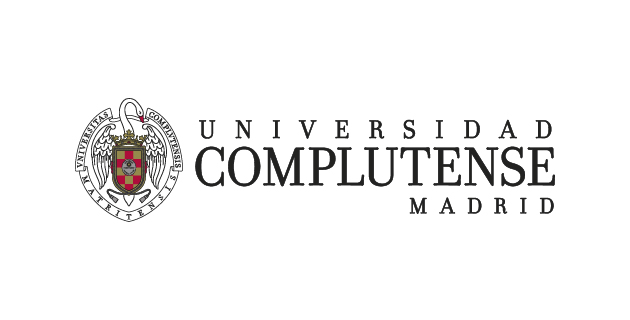
Universidad Complutense de Madrid, Spain (UCM)
UCM is the largest University in Spain, with over 6,000 professors, 85,000 students and 1230 researchers and an annual budget of over 566 M€. It is an equal opportunity, equal access employer, with active policies to avoid gender or race discrimination. With a tradition beyond five centuries, UCM has become a very important institution in terms of higher education and research activities (e.g. an income of 40M€ in 2012). UCM belongs to “Campus de Moncloa”, which houses 10,000 researchers, two universities and several research centres and has been awarded as “Campus of International Excellence”. Besides pertaining to 13 international university networks, the university maintains more than 900 bilateral agreements with institutions from 77 countries. At UCM, more than 500 research groups perform 732 active competitive research projects. UCM is highly committed with research and provides full support to this proposal, participating in European programmes such as H2020 (more than 80 signed grants) and others. UCM participates in I-CISK through the research group of Hydrogeology and Environment (Hydroamb) that brings together over 15 researchers and is hosted by the Faculty of Geological Sciences.
Role in project: UCM co-leads the Spanish Living Lab and research on co-identifying suitable climate risk management (CRM) options to be supported by climate services
Contact Person(s): Lucia De Stefano (luciads@geo.ucm.es)
URL: www.ucm.es
Role in project: UCM co-leads the Spanish Living Lab and research on co-identifying suitable climate risk management (CRM) options to be supported by climate services
Contact Person(s): Lucia De Stefano (luciads@geo.ucm.es)
URL: www.ucm.es
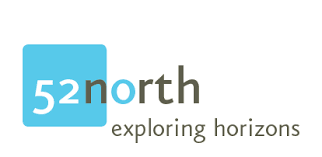
52°North Initiative for Geospatial Open Source Software GmbH, Germany (52N)
The 52°North Initiative for Geospatial Open Source Software GmbH was founded in 2006 as a non-profit organization to coordinate activities of partners from research, industry, and public administration. Its mission is to foster the development of new concepts and technologies in Geoinformatics, Sensor Web, Web-based Geoprocessing, Earth Observation, and Spatio-Temporal Data Science. The company has a long and outstanding record in the Geo-IT domain and contributes significantly to the development of international standards (e.g OGC, European INSPIRE directive). The proactive innovation strategy of 52°North is apparent in European and national research projects as well as the company’s involvement in OGC Testbeds. This is complemented by consulting and software development projects helping customers to integrate up to date technological developments into their operational infrastructures. 52°North focuses on the development of open source software to promote the use of its developments and to motivate external developers to contribute to the advancement of 52°North software.
Role in project: 52N co-leads the implementation of the I-CISK web platform for downstream climate services, as well as research on a flexible and user-tailored visualisation of data and information products.
Contact Person(s): Benedikt Gräler (b.graeler@52north.org)
URL: https://52north.org
Role in project: 52N co-leads the implementation of the I-CISK web platform for downstream climate services, as well as research on a flexible and user-tailored visualisation of data and information products.
Contact Person(s): Benedikt Gräler (b.graeler@52north.org)
URL: https://52north.org
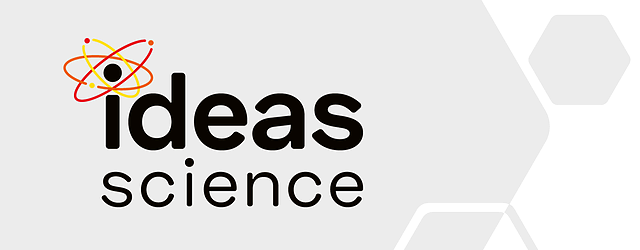
IDEAS Science Ltd., Hungary (IDEAS)
IDEAS Science (founded in 2002, reorganized in 2019) is a technology development and consultancy team that provides services to the non-profit sector, government and international research collaborations focusing on using digital technologies and advancements for social good. We specialize in providing high-quality technological solutions and consulting services for environmental and security problems. We use technological solutions, the Internet of Things (IoT) are available for broader communal use. We organize hands-on learning activities to support citizens and researchers to observe their environment and impacts of climate change around them and to gather and analyses data to start community action, cooperation and to influence local policy decisions. IDEAS Science hosts the DIY Science Lab that is a virtual community lab that supports collaborative research with local societies by organizing co-design and public engagement activities.
Role in project: IDEAS Science leads the living lab in Hungary and research in the understanding of drivers for behavioural change.
Contact Person(s): Györgyi Bela (gyorgyi.bela@ideas-science.com)
URL: Ideas-science.com
Role in project: IDEAS Science leads the living lab in Hungary and research in the understanding of drivers for behavioural change.
Contact Person(s): Györgyi Bela (gyorgyi.bela@ideas-science.com)
URL: Ideas-science.com
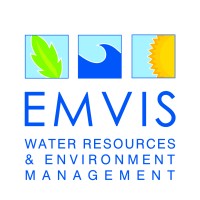
Emvis Symvouloi Michanikoi Anonymi Etaireia, Greece (EMVIS)
EMVIS Consultant Engineers S.A. is a private company, actively involved in the field of Water Resources and Environment Management, through design studies, advisory work and research. EMVIS’ partners and staff are all engineers and scientists with long working experience, specialization and high educational profile. EMVIS works with private and public sector clients, at operational and strategic decision-making level, for assessing risks from climate change and systems vulnerability, adaptation planning in urban environment, infrastructure works and industry, and implementation of climate-resilient infrastructure.
EMVIS has a strong background in the field of Water Information and Modelling Systems both with process-based numerical models and data-driven (machine learning) approaches for modelling and optimization of complex water processes. EMVIS has a strong in-house software engineering capacity and is currently providing innovative services and products to their clients using its own operational web platforms (e.g. SPACE-O, wPRISMA and wPOLIS).
Role in project: EMVIS leads the Living Lab in Greece as well as actions on the exploitation and sustainability of the I-CISK results.
Contact Person(s): Apostolis Tzimas (atzimas@emvis.gr)
URL: http://emvis.gr
Role in project: EMVIS leads the Living Lab in Greece as well as actions on the exploitation and sustainability of the I-CISK results.
Contact Person(s): Apostolis Tzimas (atzimas@emvis.gr)
URL: http://emvis.gr